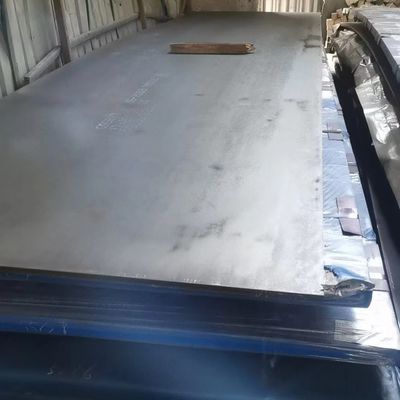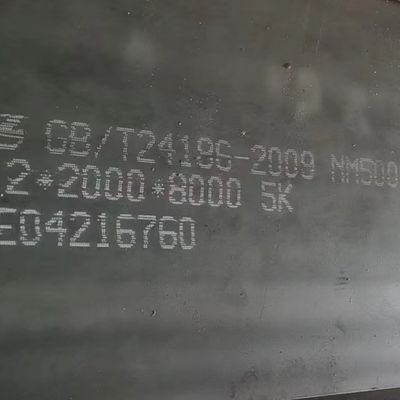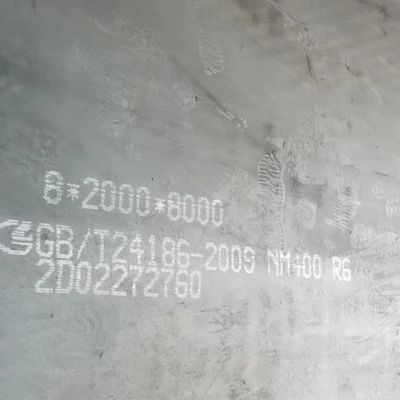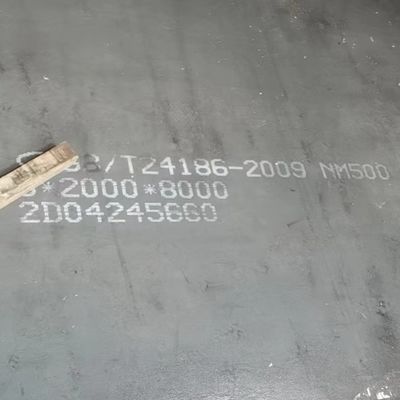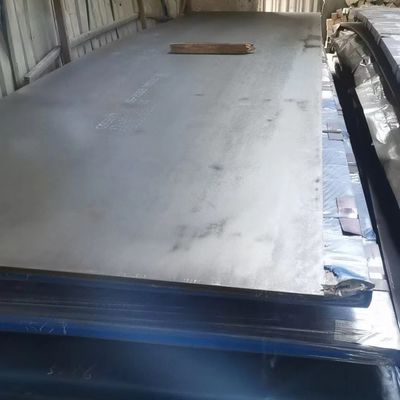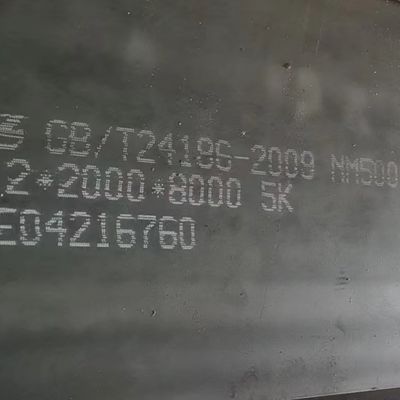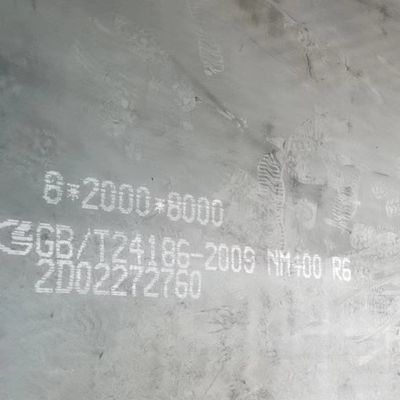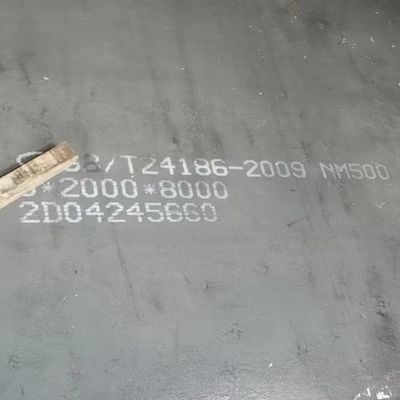-
 Raian IonescuMaterial quality very good. we have cooperate more than 10 Years. They trade lots kinds of steel material. All material quality good. They duty for all material quality. We are planing continue cooperate with them in the future
Raian IonescuMaterial quality very good. we have cooperate more than 10 Years. They trade lots kinds of steel material. All material quality good. They duty for all material quality. We are planing continue cooperate with them in the future
Abrasion Resistant Steel Plate - AR Steel Plate AR400 AR500 AR450
| Place of Origin | China |
|---|---|
| Brand Name | BAOSTEEL BENSTEEL HBIS XINGCHENG |
| Certification | ISO |
| Model Number | AR400 AR500 AR600 |
| Minimum Order Quantity | 1000 kgs |
| Price | 870 - 962USD/Ton |
| Packaging Details | standard packing for export |
| Delivery Time | 5 - 12 days based on the quantity |
| Payment Terms | L/C, T/T, Western Union |
| Supply Ability | 20Ton per week |

Contact me for free samples and coupons.
Whatsapp:0086 18588475571
Wechat: 0086 18588475571
Skype: sales10@aixton.com
If you have any concern, we provide 24-hour online help.
x| Products | Wear Resistant Steel Plate | Thickness | 10.0 - 40.0mm |
|---|---|---|---|
| Width | 1000-2200mm | Length | 2000-12000mm |
| Standard | ASTM EN GB | Other Grade | AR400 / AR450 / AR500 / AR600 |
| Brand | BAOSTEEL XINYU XINGCHENG HBIS | Service | Cutting |
| Highlight | abrasion resistant steel plate,wear resistant steel plate,wear resistant plate |
||
Abrasion Resistant Steel Plate - AR Steel Plate AR400 AR500 AR450
Products Specification of Wear Resistant Steel Plate
| Products Name | Abrasion Resistant Steel Plate |
| Thickness | 4.0 - 40.0mm |
| Width | 100 - 2200mm custom cutting any size as request |
| Length | 6m 8m 10m 11.5m 12m or cutting any length as request |
| Standard | ASTM JIS GB EN |
| MOQ | 500 Kgs |
| Deliver time | 7 - 14 days |
| Loading Port | Shanghai Port |
| Packing | wooden pallets |
| Other Grade | AR400 / AR450 / AR500 / AR600 NM400 NM450 NM500 NM600 |
| Service | Cutting, Heat treatment |
We supply abrasion-resistant plate and bar products and fabrication services to the mining, quarry, and construction industries. Abrasion-resistant (AR) steel plate grades offer enhanced hardness properties for wear-resistant applications. Wear plate is not produced to any particular ASTM spec, but instead produced to minimum Brinell hardness requirements.
What Makes Steel Abrasion Resistant?
AR steel alloys are made from billets of steel containing different alloying elements such as carbon, manganese, chrome, nickel, and boron. Of all these alloys, carbon is the most important in making steel abrasion resistant, as it increases hardness and toughness. The AR steel is then produced by “Quenching and Tempering” (Q&T), during which the grain structure is changed to increase toughness and reduce brittleness.
Q&T is a 2 stage process: Quenching occurs when the steel is brought to a temperature of around 1500 degrees F and cooled with oil, water, or air. This process increases hardness. Tempering is the process or reheating the steel to around 300-700 degrees F which allows the steel to become more ductile.
While high-carbon alloys and Q&T treatment makes steel harder, it also reduces its tensile strength. Therefore AR steels are used in situations where abrasion, wear, tear and impact are the main problem, and not constant tension or pressure. As such, AR steels are not ideal for structural construction like beams in bridges and buildings. Common uses are in buckets, grates, chutes, conveyors, ore pockets, and armor for vehicles and targets.
Better Quenching for Better Steel
Most AR Steels are water quenched because it is the fastest, cheapest option. Our plate are oil quenched which, while being far more expensive and time consuming, has the advantage of developing a homogeneous microstructure (maintaining the ‘grain’ of the metal), significantly reducing susceptibility to tearing, shearing, gouging, and wear.
Water quenching, used by other AR steels, disrupts the grain, resulting in a microstructure that is like fallen “Pick-Up sticks”, making it more susceptible to gouging and tearing of the steel, speeding up wear and deforming the steel.
Finally, ENDURA, ENDURA Dual and Titus Manganese are work hardening, meaning that the more impacting they sustain, the harder they become. For example, ENDURA AR 430 has an initial hardness of 430 BHN but, as it withstands impacts, it will harden up to 560 BHN. That’s an increase in hardness of 30%. Titus Manganese will work harden from 280 BHN to 550 BHN—which is an increase in hardness of over 200%.
Tests we carry out (including both Destructive and Non-Destructive) :
- Positive material recognition
- Mechanical examining like tensile, Elongation and reduction of area.
- Large-scale test
- Chemical examination-Spectro analysis
- Firmness test
- Pitting protection test
- Small tests
- X-ray test
- Impact analysis
- Eddy current examining
- Hydrostatic analysis
- Prompt test
Packing :
Packing is quite important especially in a case of international shipments in which consignment pass through various channels to reach the ultimate destination, so we put special concern regarding packaging.
- We pack our goods in numerous ways based on the products. We pack our products in multiple ways, such as,
- Shrink-wrapped
- Carton boxes
- Wooden pallets
- Wooden boxes
- Wooden crates
![]()
![]()
![]()
![]()



